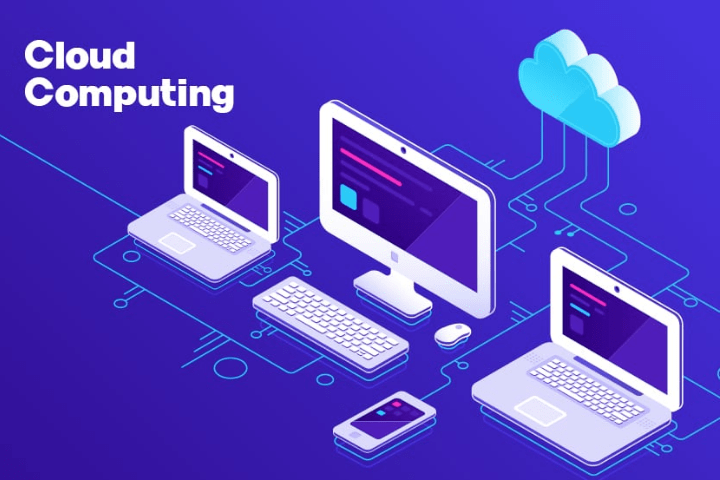Big data refers to massive amounts of unstructured & organized data that are difficult to manage for numerous firms. Yet, it is not only the sort of a significant volume of information that organizations are doing with the crucial data. Big data analysis will evaluate accordingly to provide information that enhances judgment & provide assurance in crucial business choices.
The Development Of Big Data
Big data known as data that is so massive, quick, or complicated that typical ways of processing it are difficult or impossible. The act of gathering and storing enormous volumes of data for statistics will perform for a longer time. However, the notion of big data picked up steam in the early 2000s as industry expert Doug Laney defined this as the key V’s: Variety, Velocity & volume.
Volume
Data will gather via organizations in different ways that include industrial equipment, images, transactions, audio, smart (IoT) devices, social media, videos & others. Previously, storing that kind of data was too expensive, yet affordable storage solutions with Hadoop, data lakes & the Cloud has alleviated the strain.
Velocity
Even as the Internet of Things grows, data is flooding inside corporations at an unprecedented rate & it must be processed promptly. The use of sensors, RFID tags & smart meters is rising continuously for relatively close data processing.
Variety
Data exists in various formats, including quantitative data in databases, structured emails, unstructured text documents, audios, videos, financial transactions & stock ticker data.
Variability
It relates to the irregularity that data may display at times, obstructing the process of correctly analyzing & managing data.
Big Data Significance In Today’s World
The way businesses approach & derive value from big data is changing the world through receiving business information. Discover more about the relevance of big data. The importance of big data will decide by variables other than the volume of data accessible. The worth of anything is defined by how it will utilize accordingly.
Analyzing data from any source may lead to the discovery of solutions that enhance resource management, optimize product development, increase operational efficiency, enable smart decision making, and give new revenue & growth prospects. When massive volumes of data will couple with rising analytics, it is possible to conduct business-related activities like:
- Identifying the underlying causes of failures, problems, and malfunctions in near-real-time.
- Detecting abnormalities quicker & more accurately than of human eye
- Enhancing patient outcomes as quickly as possible through medical imaging data conversion into insights.
- Risk evaluation portfolios may rebalance in a matter of minutes.
- Improving deep learning models capacity can recognize & adapt to changing conditions.
- Detecting unethical activity before anyone harms your company.
Massive amounts of data are a huge concern for industries. The growth of IoT & certain other smart devices has resulted in a tremendous rise in the amount of data organizations gather, manage, and analyze. Massive amounts of data can provide huge insights for every sector, large or small.
Approach Of Big Data
Maximum continuous use of huge data is now available, providing endless prospects for obtaining insights that drive innovation. Big data analysis applications foster innovations that have the potential to revolutionize our civilization by making things better through curing illness, conserving resources, protecting the vulnerable, improving consumer experiences & ranging from more precise prediction to boosting operational efficiency.
Organizations must understand how information moves over several regions, systems, sources, owners & users before they will exploit big data. Controlling this large data fabric which includes structured data & also unstructured and semistructured data requires five crucial steps.
Make A Big Data Strategy
Big data policy is a strategy that helps you monitor and improve the way you gather, manage, store, disseminate, and use data both in & out of your organization. A huge data approach lays the groundwork for an organization’s growth via a flood of data. When creating a strategy, it is vital to assess ongoing & prospective commercials with technological goals and efforts. This demands considering large data as a valuable corporate asset rather than a product of applications.
Locate Large Amounts Of Data
IoT (Internet of Things), as well as other connecting devices, create data streams that will receive by IT (information technology) systems. Social media data generates interactions on sites such as Instagram, YouTube & Facebook. There is indeed a lot of information available in the format of images, voice, movies, text, and sound. Big data sources include suppliers, cloud data sources, data lakes & customers to name a few.
Managing, Gaining Access To & Storing Massive Volumes Of Data
Modern operating systems will provide the power, speed, and flexibility needed to extract enormous types & quantities of big data quickly. Businesses require methods for integrating data, building data pipelines, providing data governance & storage, ensuring data quality, preparing data for analysis, and in addition to dependable access. While a small amount of data will retain locally in a traditional data warehouse, there are alternative flexible, low-cost options for processing, storing huge volumes of data, including data lakes, cloud solutions, Hadoop & data pipelines.
Analyze The Data
Organizations can use high-performance technology including in-memory analytics to evaluate all of their big data. Another approach is checking whether the data is relevant before analyzing it. Huge data analytics is the way to systematically generate value & insights from data. Large data is rapidly powering today’s complicated analytics processes also including machine learning & AI (artificial intelligence).
Make Data-Driven, Well-Informed Judgments
The well-managed and trustworthy search led to reliable analytics & conclusions. Businesses must receive the magnitude value of huge data & function in a data-driven manner, making logical decisions offer by large data instead of gut feeling, and remain competitive. The advantages of data-driven decision-making are self-evident. Data-driven businesses outperform their competitors, are much more reliable in their processes & are more lucrative.
The Benefits Of Big Data Analysis
The ability to analyze large Data within DBMS provides a variety of advantages, including
- Companies can make judgments based on external intelligence
- Better client service
- Early diagnosis of possible product/service hazards
- Improving operational efficiency
Also Read: Unlock Your Future With Top Cybersecurity Careers











